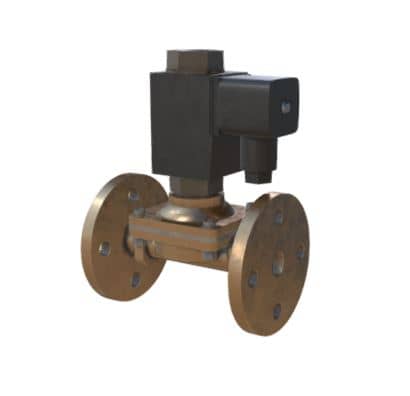Introduction
A solenoid valve is an electromechanically operated valve. They have found widespread application in many industries as they allow rapid switching of valves (open/close) and require little maintenance. This type of valve is not well suited for flow control (throttling).
How Solenoid Valves Work
Electrical current flows to windings and this creates an electromagnetic field. The electromagnetic field acts upon a plunger and pulls the plunger upwards to open the valve. A spring closes the valve again. Solenoid valves are ideal when a fast response is required and it is not necessary to regulate the flow (throttling).
3D Model Components
This 3D model shows all major components associated with a typical solenoid valve, these include:
- Plunger
- Casing
- Moving Contact
- Stationary Contact
- Windings
- Terminal Connection
Additional Resources
https://en.wikipedia.org/wiki/Solenoid_valve
https://www.omega.com/en-us/resources/valves-technical-principles
